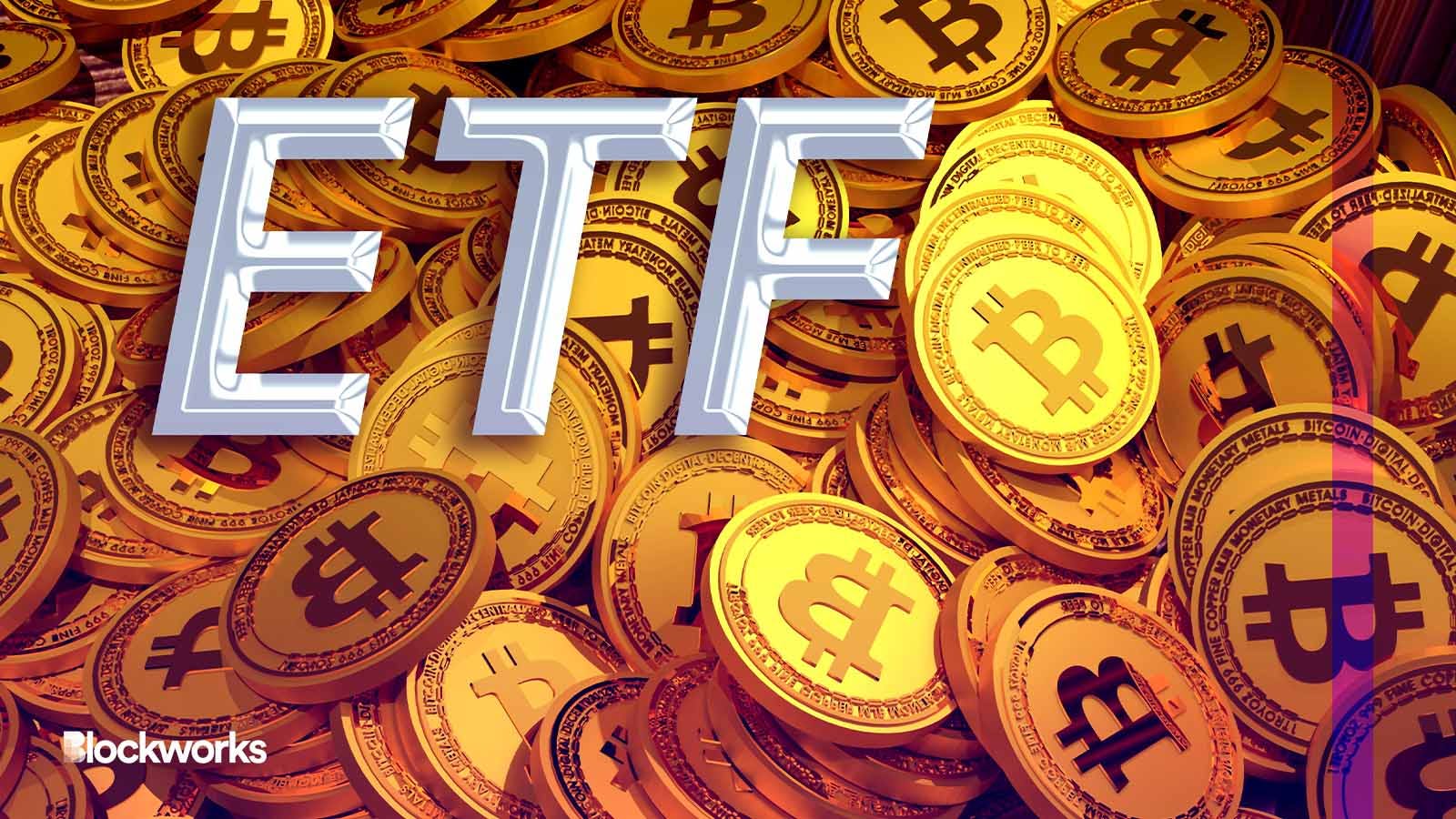How Hashdex’s planned bitcoin ETF differs from competing proposals
Brazil-based asset manager’s planned bitcoin ETF seeks “to avoid any exposure to potential manipulation from unregulated exchanges”

Akarat Phasura/Shutterstock modified by Blockworks
Fund group Hashdex has entered the spot bitcoin ETF race from a different angle — adding to the list of such proposals in front of the US Securities and Exchange Commission, but with a twist.
The Brazil-based asset manager aims to morph the Hashdex Bitcoin Futures ETF (DEFI) into a fund that holds bitcoin directly, according to a Friday filing by NYSE — the stock exchange that would list the proposed fund.
The new fund would hold a combination of bitcoin futures contracts, spot bitcoin, and cash — a mix that “could significantly mitigate the risk of market manipulation while still providing the market with a regulated product that tracks the actual price of bitcoin,” NYSE states in the filing.
The Hashdex Bitcoin ETF expects to purchase and sell physical bitcoin via the Chicago Mercantile Exchange’s (CME) Exchange for Physical (EFP) Transactions, which the filing notes are subject to CME’s market surveillance.
EFP transactions are “privately negotiated trades between two counterparties allowing them to simultaneously transfer a futures position for an equivalent spot market position or vice versa,” according to the CME website.
Bryan Armour, director of passive strategies research for Morningstar, said the filing is “the strongest test of the precedent” set by the SEC when it approved ETFs holding bitcoin futures, but not those that hold bitcoin directly.
“The crux of the matter is whether obtaining bitcoin exposure by exchanging futures for spot bitcoin on the CME adequately addressed the SEC’s concerns about the spot bitcoin market,” Armour explained. “Using Exchange for Physical to bypass buying bitcoin on a crypto exchange feels a bit like a procedural technicality, but technicalities are exactly what the SEC has rewarded so far for crypto ETFs.”
Nate Geraci, president of The ETF Store, noted that the existing surveillance sharing agreement between NYSE and CME — put in place for the ProShares Bitcoin Strategy ETF (BITO) — should “theoretically suffice” in addressing SEC concerns around monitoring fraud and manipulation.
“This is a very savvy move by Hashdex and puts the SEC in a tough spot given the agency has already blessed the CME bitcoin futures market,” Geraci said. “I can absolutely envision a scenario where this is approved prior to other spot bitcoin ETF filings — though there remain several variables here, including the outcome of Grayscale’s lawsuit.”
Hashdex believes that converting an existing product, rather than submitting a new filing with the SEC, might position it as the first US ETF to directly hold bitcoin, a source familiar with the matter told Blockworks.
Not all agree.
“The fact that it’s a live product shouldn’t give Hashdex an advantage here, I don’t think,” Bloomberg Intelligence analyst James Seyffart said. “It still has to go through the 19b-4 process like everyone else.”
Like other planned bitcoin ETFs the SEC is considering, the regulator has up to 240 days to rule on the proposal.
A spokesperson for Hashdex declined to comment.
Not relying on an agreement with Coinbase
Hashdex’s DEFI — originally proposed as the Teucrium Bitcoin Futures Fund — launched in September 2022.
In an effort “to avoid any exposure to potential manipulation from unregulated exchanges,” the document says, the proposed fund’s net asset value would be calculated using a spot bitcoin price derived from the prices of bitcoin futures traded on the CME.
This distinction differentiates it from other bitcoin ETF filings submitted in recent months.
Asset management giant BlackRock set itself apart from previous bitcoin ETF filings by noting in a June proposal that Nasdaq was willing to enter into a surveillance-sharing agreement (SSA) with “an operator of a US-based spot trading platform for bitcoin” — later naming the platform as Coinbase.
The listing exchanges working with other fund groups on bitcoin ETF proposals, such as Cboe, added similar language to their own applications.
Samir Kerbage, head of products at Hashdex, wrote in a Friday blog post that the SEC continues to reject spot bitcoin ETF proposals based on concerns of potential market manipulation.
“BlackRock and most other spot bitcoin ETF applicants believe a surveillance-sharing agreement with the exchange where BTC trades solves this, but there has been no evidence that this addresses the SEC’s concerns,” Kerbage added.
Geraci called the filing’s reference to Coinbase as “unregulated” a “nice competitive move” in a tweet. The SEC sued Coinbase in June for allegedly operating as an unregistered exchange — claims the company has denied.
“I think what Hashdex has proposed is rather novel and potentially goes around some of the SEC’s concerns with the bitcoin spot markets,” Seyffart told Blockworks. “[But] I personally think that having a Coinbase SSA should not hurt, and that it can [and] should only help.”
Hasdex’s move is not exactly unexpected.
Bruno Sousa, head of Hashdex’s US business, told Blockworks in March that the company would be ready to convert its bitcoin futures ETF to a spot product.
Sousa pointed out that while other US bitcoin futures ETFs were filed under the Investment Company Act of 1940, Hashdex’s fund was submitted under the Securities Act of 1933. This structure potentially allows for direct bitcoin holding, pending regulatory approval.
Get the news in your inbox. Explore Blockworks newsletters:
- The Breakdown: Decoding crypto and the markets. Daily.
- 0xResearch: Alpha in your inbox. Think like an analyst.






